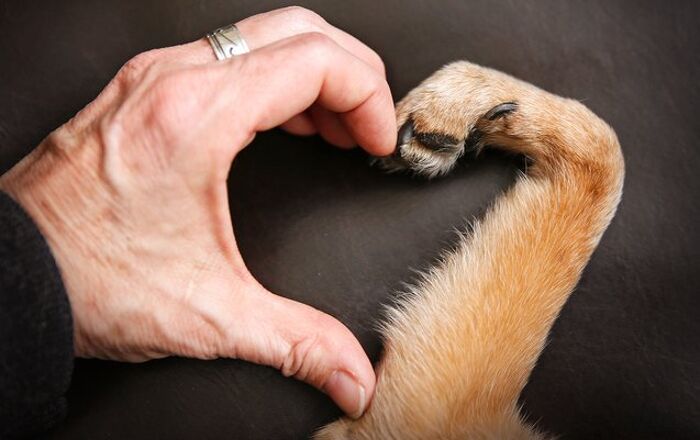
An inherited disorder, syringomyelia in dogs affects the skull. A disease seen in smaller-breed dogs, here’s what you need to be on the lookout for.
Small-breed dogs seem to have a higher risk for spinal disorders than other breeds and syringomyelia is one of them. This condition tends to affect Cavalier King Charles Spaniels and Griffon Bruxellois most frequently, but it may also be seen in Boston Terriers, Havanese, Papillons, Pomeranians, and other small terriers and toy breeds. Keep reading to learn more about this condition.
What Exactly is Syringomyelia?
Believed to be an inherited disorder, syringomyelia develops when the dog’s skull is too small for his brain. When the brain is too large for the skull, it may block the opening at the base of the neck which prevents spinal fluid from flowing normally. As a result, spinal fluid backs up and accumulates in small pockets within the spinal cord known as syrinxes. The presence of these pockets can cause severe pain in the head, neck, shoulders, and chest, making these areas sensitive to the touch and contributing to weakness or paralysis in the extremities.
Though the exact cause of syringomyelia is unknown, it is thought to be a hereditary condition. The symptoms of syringomyelia depend on the age of the dog and the stage of the disease. In the early stages, dogs may display no symptoms at all but, over time, symptoms such as these may develop:
There are different types of syringomyelia as well as different classifications depending on the stage and severity of the disease. Keep reading to learn more about diagnosis and treatment.
How is it Diagnosed and Treated?
The best way to diagnose syringomyelia is through an MRI scan of the brain and spinal column. Unfortunately, if your dog is in the early stages and shows no symptoms, you may not know that there is a problem and diagnosis could be delayed. Once a diagnosis is made, however, there are a few options for treatment to relieve pain and manage the condition.
In some cases, treatment may involve surgical removal of part of the bone that is blocking the spinal column – this is known as cervical or cranial decompression and it has an 80% success rate. In some cases, however, the problem may simple redevelop and symptoms will return. Another option is medical management with drugs to reduce swelling and relieve pain. If the dog is experiencing seizures, anticonvulsant medications may be warranted as well. Some dogs also respond well to physical therapy. Keeping your dog calm and well hydrated are also very important for management and recovery from syringomyelia.
Because syringomyelia is a serious condition, it is important that you do not ignore any signs or symptoms, mild though they may be. Dogs do not communicate pain in the same way that humans do, so your dog might not make it obvious if there is something wrong – you need to know your dog well enough to identify changes in behavior and then bring your concerns to a vet for testing. Early diagnosis is essential for recovery from syringomyelia, so don’t ignore the warning signs!














